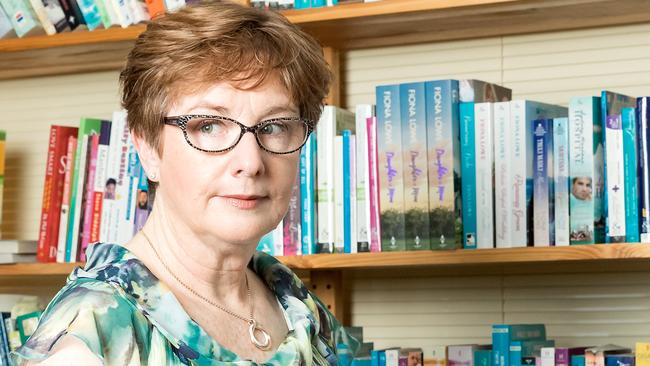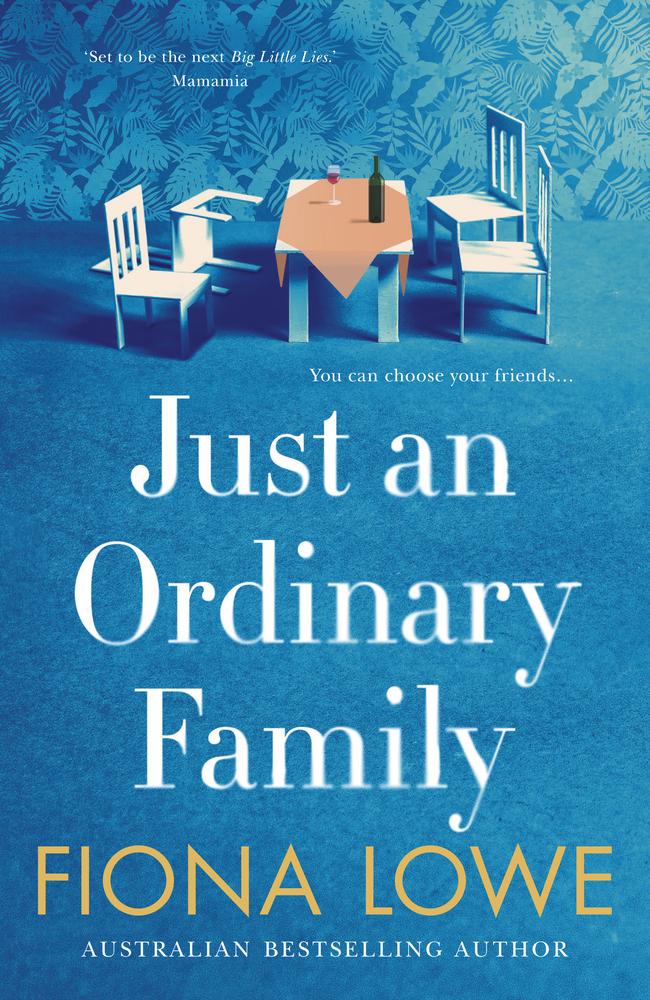Fiona Lowe’s new book looks at the reasons why Australian needs strong women
She has been a midwife, a sexual health counsellor and a family support worker — now Fiona Lowe pens novels. She writes why Australia in 2020 needs strong women in fact and fiction.

Books
Don't miss out on the headlines from Books. Followed categories will be added to My News.
She has been a midwife, a sexual health counsellor and a family support worker — now FIONA LOWE writes novels about family and relationships. Marking International Women’s Day, today she writes why Australia in 2020 needs strong women in fact and fiction.
When I finished high school, the contraceptive pill had been around for twenty years and Germaine Greer’s The Female Eunuch had been out for a decade.
But the messages about careers from my private girls’ school were mixed. I’d been placed in the science stream. I was expected to go to university. But when I announced I wanted to be a park ranger, I was given a “dose of common sense.”
At an interview in the late 80s, I was asked how I could possibly manage working and studying full-time as a student midwife when I had a husband. Apparently, he’d starve without me.
The generation of women following me received a very different message: you can have it all — a high-flying career and a family. That message is as flawed as all the others preceding it.
“To be a captain of Australian business you are 40 per cent more likely to be named Peter or John than to be female,” leading workplace expert Conrad Liveris said in a report that went viral in 2017.

Women continue to do a larger percentage of domestic chores irrespective of whether they work in paid employment, as Annabel Crabb demonstrated in her book The Wife Drought. These two issues, along with many more, are why I write about strong women living ordinary lives and facing extraordinary challenges.
I receive letters from readers sharing their own life adventures, many similar to my characters. This sort of connection with fiction normalises experiences and helps women know they’re not alone. Women do most of the emotional heavy lifting and, no matter the generation, they face unrealistic societal expectations. As a result, they are inherently hard on themselves for perceived failures.
The four women in Just an Ordinary Family are no exception.
By and large, women are the emotional cornerstones of their family and community. We work outside the home, but a certain portion of our brain is always connected to the domestic sphere — the mental load. Who is picking up the kids? Delivering food to sick parents? Buying the gift for the fifth birthday party? Or as GP Libby Hunter in Just An Ordinary Family discovers at breakfast as she’s racing out the door to work, it’s yellow day at school and her daughter doesn’t own a single piece of yellow clothing.
Life’s a constant juggle and balls get dropped. Instead of blaming themselves, I want women to fight back against learned behaviours and look at the division of labour in their family. I sew these seeds in fiction. We don’t need to do everything even if we feel we should. I’d love it if someone reading Just An Ordinary Family took away something from Libby and Nick’s teamwork in parenting and division of household tasks.
With Australia’s current childcare arrangements, more women than men are questioning the impact of their career choices on their children, although I also sense a shift in younger fathers. Is this why many women are stepping back from the less-than-family friendly corporate world? Jess, the career single mother in Just An Ordinary Family faces this dilemma. She has chosen to relocate and start her own business so she can to work around her young son, however this decision too comes with its own set of challenges.

And what of women who are childless by choice or circumstance?
Alice Hunter was working for her partner’s company when the relationship broke down. She found herself out of a job and a home. At thirty-four, a time when women are expected to have their life under control, society views this as failure — no children, no career, no money. This impacts on self-esteem and mental health. A single, childless man is not scrutinised with quite as much judgment.
Older women are also challenged by societal expectations. Post-menopausal women become invisible. Try getting served in a technology store!
When a woman has defined herself by her career and her mothering, the loss of both can leave her floundering. Karen Hunter doesn’t particularly want to retire, but at sixty-five she is feeling that pressure. She enjoys being a grandmother but she’s raised her daughters so surely there’s more to life?
In Just an Ordinary Family, I’ve explored four women trying to live their best life against a backdrop of expectations, loss, betrayal, heartache and regret. Sure, they make mistakes — we all do that. It’s what we do with those mistakes that counts. This is why portraying strong women in fiction battling real moral and ethical dilemmas matters.
Fiona Lowe’s Just an Ordinary Family, published by HarperCollins Australia, is on sale now.
From strong women to serious intrigue: Set in the court of Henry VIII, Hilary Mantel’s The Mirror and the Light is our Book of the Month. Get a 30 per cent discount at Booktopia with the code MIRROR10.
Discuss your favourite females in fact and fiction at the Sunday Book Club Facebook group.
A NEW PAGE: MUST-READS FOR INTERNATIONAL WOMEN’S DAY
*Too Much Lip by Melissa Lucashenko: Every Australian should read this novel about an indigenous family of strong women.
*This is What a Feminist Looks Like by Emily McGuire: I believe we need to know what we’ve gained from the efforts of those who’ve gone before.
*Out There – a survival guide to dating in midlife by Kerri Sackville: Fabulous advice for women of all ages embracing digital dating.
*Persuasion by Jane Austen: Austen’s protagonists were strong women. Today, her novels are classics but when they were written they were considered Regency chick lit!
*The Colour of Rust by P.A. O’Reilly: Full of wry humour, this novel is a great example of an everyday woman fighting for her family and community with wry humour. Loretta rocks!
